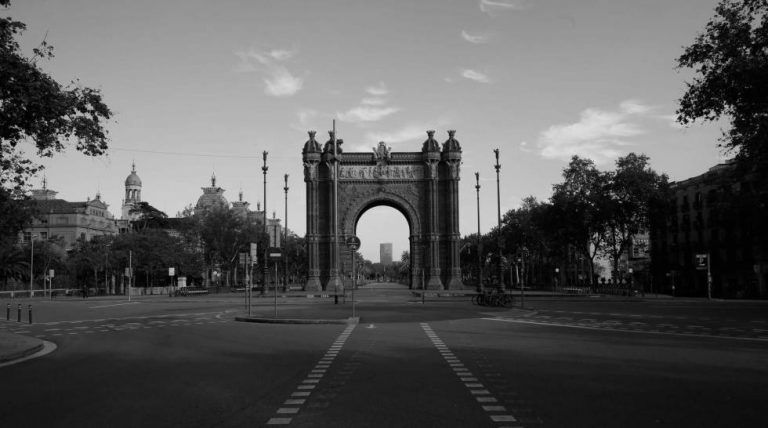Territory, City and Architecture after Confinement

Text for «Arquitecturas Escritas» de AxA_Arquitectes per l’Arquitectura.
http://arqxarq.es/arquitectures-escrites-carlos-ferrater-i-alberto-penin-axa/
The tragic situation in the world (especially in our European environment today) as a result of the COVID-19 pandemic is radically transforming all aspects of people's daily lives. Work, social relations, economy, education, sport and housing are just some of the many aspects of this unprecedented crisis caused by an invisible enemy. The origin of these transformations is surely circumstantial. However, the radicality with which they are being implemented points to a larger and more lasting impact, in which the perception of time and space is deeply changed. If this material is used to make architecture, in the face of the true health tragedy, we are left the option of taking a proactive attitude from our discipline that draws on the sinister thrust of this dystopian scenario to make out a world that, if not better, is at least different.
The city now becomes a dream with the radical disappearance of what is public: there are no streets, no squares. The territory as a yearning, with mobility frozen. Nature recovers its lost space, pollution disappears, renaturalisation comes without a project through the non-appearance of civilisation. On the other side of the spectrum, the private sphere takes on an unexpected dimension and the house, now reformulated, rethought and reused, becomes the new vital universe where work, education and abode reluctantly blend. Now dazzled by this burst, how will we see the dwelling (even from a market view), the city? What opportunities, if any, are behind this scenario?
The might of the shake-up has not only changed our relationship with the outside through this public-private balance, but has also reorganised many of our personal paradigms. Contact with others, the disappearance of the sensitive, implacably replaced not by the virtual but by the remote, build an introspective psychological universe where technology takes on a definitive central role as an extension of the social self, which will or will not be supportive and fraternal.
The house reconceived, the trade-less city, the territory, the remote space are some ingredients, though trivial in the face of the health and social magnitude of the pandemic, that have been inoculated in the lives of the people which will, at best, constitute new materials of architects’ action and thought.
Alberto Peñín and Carlos Ferrater
Palimpsesto Editorial
